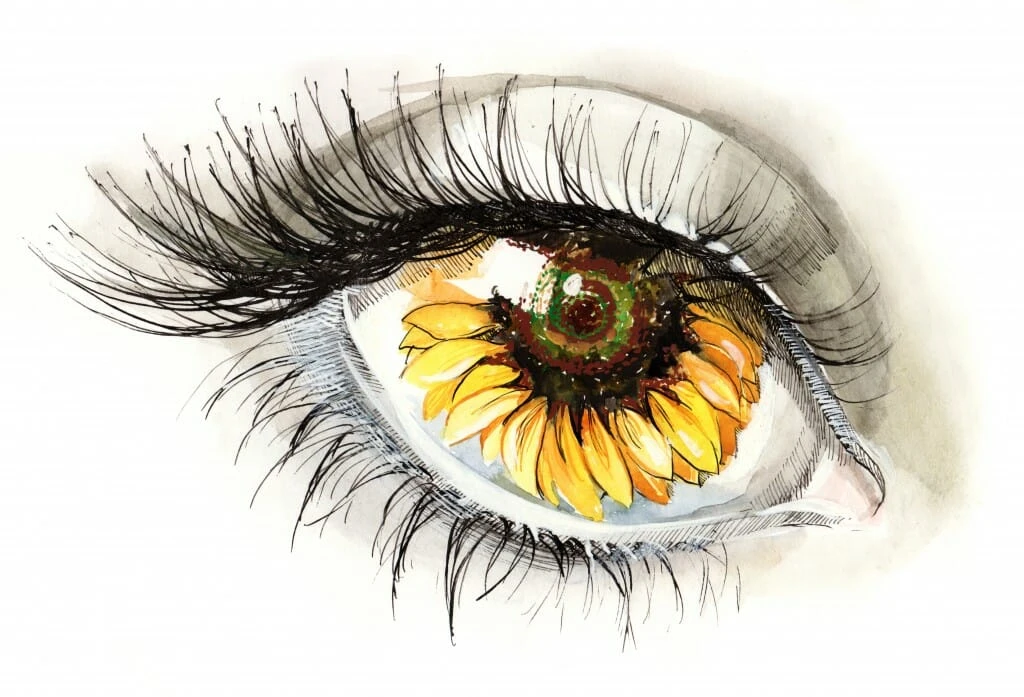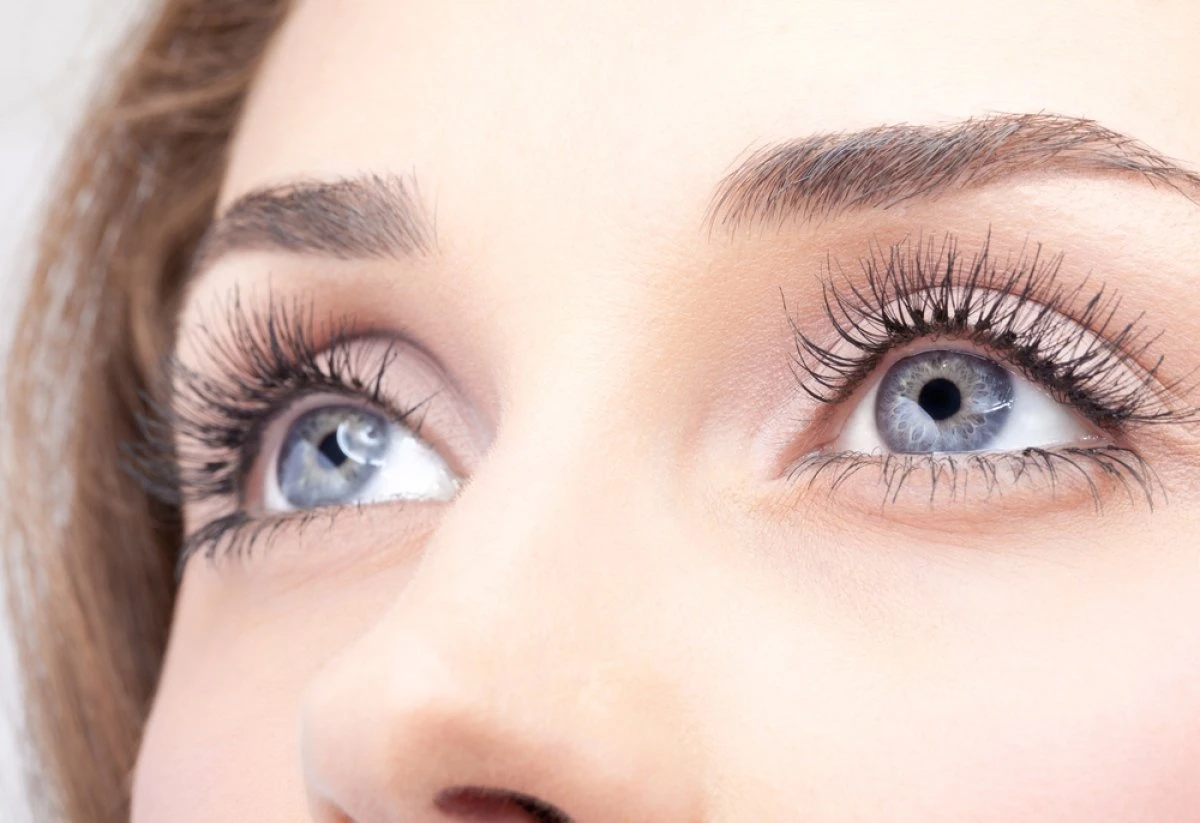Dry Eyes and Allergies
About 30 percent to 50 percent of U.S. residents have allergy symptoms. Nearly 75 percent of those allergy symptoms affect the eyes. In other parts of the world where the weather is dry and dusty and pollution is high, these statistics may even be higher. Allergies can trigger other problems.

Symptoms of Allergy Dry Eyes
Symptoms of dry eyes and allergy have many similarities. Patients with existing dry eye conditions can experience even more severe irritation during the spring and fall seasons, when pollen count is high. Some have symptoms of both allergies and dry eyes year-round.
Some of the common symptoms of seasonal allergies are:
- Red, swollen or itchy eyes – similar to dry eye symptoms
- Runny nose, sneezing, coughing
- Itchy nose, mouth or throat
- Headache from sinus congestion
- Fatigue from lack of sleep
The combination of allergies and dry eyes often presents as dry, itchy, red, and watery eyes.
Most allergens (agents that elicit allergy symptoms) are in the air, where they come in contact with your eyes and nose. Airborne allergens include pollen, mold, dust and pet dander (cat and dog dander, in particular). Some allergens like dust mites are embedded into carpets, drapery, and bedding. In that case, the allergens are triggering allergies and dry eyes all year round.
Conventional Treatments for Allergy Dry Eyes
- The most common treatment for allergy is anti-histamines, which offer quick relief. However anti-histamines cause dehydration and sleepiness, as well as sometimes dizziness, and they often are the cause for dry eyes.
- Decongestant eye drops are another common treatment, which constrict the blood vessels in your eye to take the red out. Long-term use can cause your eyes to become dependent on these eye drops, and when you stop, the blood vessels become even larger, making red eyes worse.
- Non-steroidal anti-inflammatory drops (e.g. Patanol) can sooth allergy eyes. Their effect is longer term than that of anti-histamines. Non-steroidal anti-inflammatory drugs are effective in treating allergy eyes but not dry eyes.
- Prescription steroidal eye drops provide quick relief; however, long term use has been associated with side effects such as increased inner eye pressure leading to glaucoma and optic nerve damage. Steroids also have been known to cause cataracts. Prescription steroid eye drops are normally used for very severe cases and for periods shorter than one month.
Why TheraLife® Eye Enhanced?
TheraLife® Eye Enhanced is an all-natural botanical product which is free from the side effects of anti-histamines (dehydration, dizziness, fatigue and causing dry eyes to get worse) and prescription drugs.
The TheraLife® Eye Difference
- All-natural products without the side effects of drugs
- 100% safe and pure ingredients, FDA approved
- Provides lasting relief for chronic dry eye discomfort
- Helps reduce irritation and inflammation of the tear glands, eye surfaces, and eyelids
- Helps restore your eyes’ ability to produce their own natural tears
- Clinically proven – 86% of patients in a clinical study showed increased tear production
- Helps more than fish oils or flax seed oils alone because of its unique, patented formulation of nutrients, phytochemicals, and proprietary herbal extracts that
- Improves ocular micro-circulation – to deliver more nutrients and oxygen to the eye, while carrying out more harmful waste products
- Stimulates Mito-Activation – to boost intracellular metabolism and restore normal cell function
- Keeps your eyes healthier and stronger
- 90-day money back guarantee
References
- 1. The definition and classification of dry eye disease: report of the Definition and Classification Subcommittee of the International Dry Eye WorkShop (2007). Ocul Surf. 2007 Apr;5(2):75-92. [PubMed]
- 2. Huang R, Su C, Fang L, Lu J, Chen J, Ding Y. Dry eye syndrome: comprehensive etiologies and recent clinical trials. Int Ophthalmol. 2022 Oct;42(10):3253-3272. [PMC free article] [PubMed]
- 3. Craig JP, Nichols KK, Akpek EK, Caffery B, Dua HS, Joo CK, Liu Z, Nelson JD, Nichols JJ, Tsubota K, Stapleton F. TFOS DEWS II Definition and Classification Report. Ocul Surf. 2017 Jul;15(3):276-283. [PubMed]
- 4. King-Smith PE, Fink BA, Hill RM, Koelling KW, Tiffany JM. The thickness of the tear film. Curr Eye Res. 2004 Oct-Nov;29(4-5):357-68. [PubMed]
- 5. King-Smith PE, Fink BA, Fogt N, Nichols KK, Hill RM, Wilson GS. The thickness of the human precorneal tear film: evidence from reflection spectra. Invest Ophthalmol Vis Sci. 2000 Oct;41(11):3348-59. [PubMed]
- 6. Chen Q, Wang J, Tao A, Shen M, Jiao S, Lu F. Ultrahigh-resolution measurement by optical coherence tomography of dynamic tear film changes on contact lenses. Invest Ophthalmol Vis Sci. 2010 Apr;51(4):1988-93. [PMC free article] [PubMed]
- 7. Willcox MDP, Argüeso P, Georgiev GA, Holopainen JM, Laurie GW, Millar TJ, Papas EB, Rolland JP, Schmidt TA, Stahl U, Suarez T, Subbaraman LN, Uçakhan OÖ, Jones L. TFOS DEWS II Tear Film Report. Ocul Surf. 2017 Jul;15(3):366-403. [PMC free article] [PubMed]
- 8. Peng CC, Cerretani C, Braun RJ, Radke CJ. Evaporation-driven instability of the precorneal tear film. Adv Colloid Interface Sci. 2014 Apr;206:250-64. [PubMed]
- 9. Zhou L, Beuerman RW. Tear analysis in ocular surface diseases. Prog Retin Eye Res. 2012 Nov;31(6):527-50. [PubMed]
- 10. Mantelli F, Mauris J, Argüeso P. The ocular surface epithelial barrier and other mechanisms of mucosal protection: from allergy to infectious diseases. Curr Opin Allergy Clin Immunol. 2013 Oct;13(5):563-8. [PMC free article] [PubMed]
Testimonial
"I am 6 months post LASIK. I was diagnosed with dry eyes and MGD. My eyes are red, inflamed with mucus. I can not begin to tell you how much Theralife has made a difference for my eyes! I'm still currently using 3-4 capsules twice daily, along with fish oil, warm compresses and daily eye hygiene with lid scrubs. My eyes have been feeling great! Thank you so much for caring. " Sincerely, Elise, , United States *Results may vary

